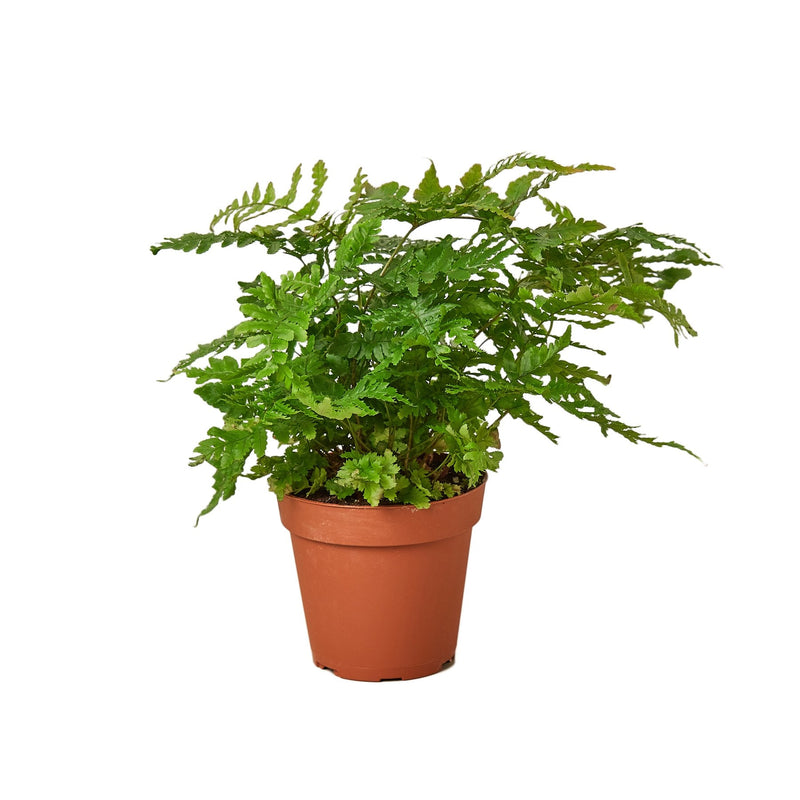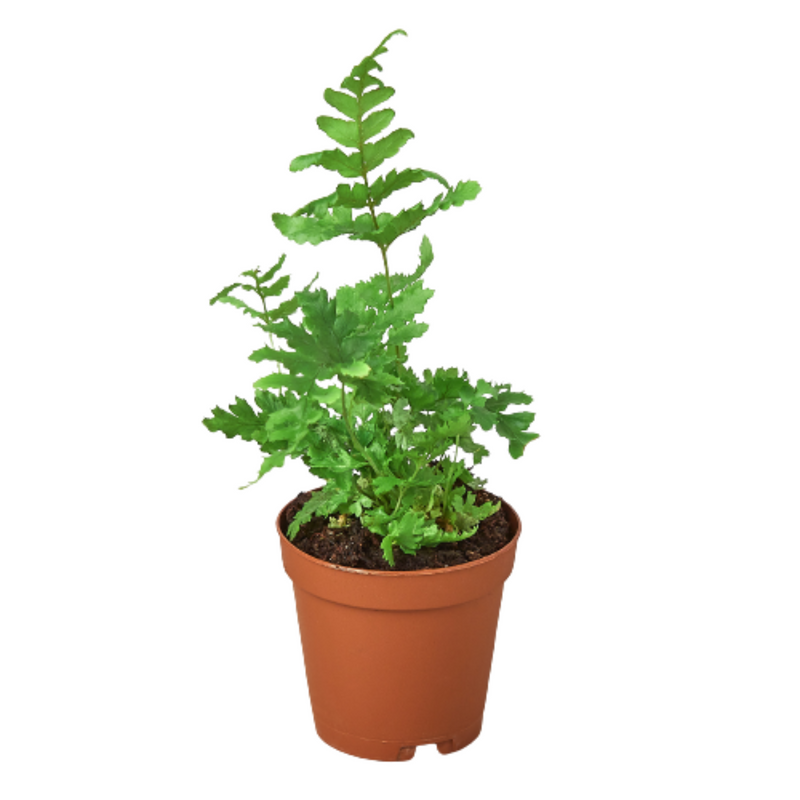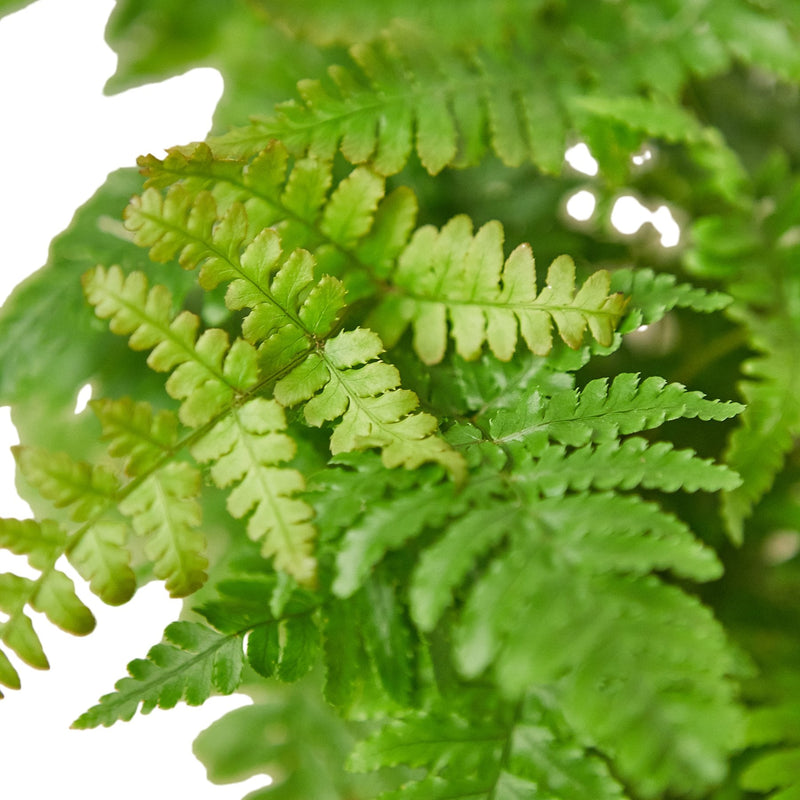'Autumn' Fern
Couldn't load pickup availability
The 'Autumn' Fern, scientifically named Dryopteris erythrosora, is celebrated for its striking fronds that emerge in shades of copper and orange, maturing to a lush, deep green. This evergreen fern adds year-round interest to any setting, with its color transition mimicking the autumnal changes of the landscape. It's a versatile plant that performs well both in garden beds and as a container specimen, making it a favorite among fern enthusiasts and gardeners looking for robust, yet beautiful foliage plants. Here's how to ensure your 'Autumn' Fern thrives:
🌿 Botanical Name: Dryopteris erythrosora
🐾 Pet Warning: 'Autumn' Fern is non-toxic to pets, making it a safe choice for households with animals.
💧 Care Level: Easy to Moderate. The 'Autumn' Fern is relatively low-maintenance, making it suitable for gardeners of all levels.
📏 Approximate Size: Typically grows to about 18-24 inches tall and wide, perfect for understory plantings or as a focal point in shaded garden areas.
🌞 Light: Prefers partial to full shade. Too much direct sunlight can scorch its leaves, but it does need some light to highlight its beautiful colors.
💧 Water: Keep the soil consistently moist, especially during dry spells. 'Autumn' Fern does not like to dry out completely. However, it's also important to avoid waterlogged conditions to prevent root rot.
💦 Humidity: While it's more tolerant of dry air than some ferns, maintaining a moderate level of humidity can help the 'Autumn' Fern look its best, especially if grown indoors.
🌡️ Temperature: Thrives in temperatures between 60°F to 70°F (15°C to 21°C). It is relatively cold-hardy, withstanding temperatures down to USDA zone 5.
❄️ Hardiness: 'Autumn' Fern is cold-hardy and can survive outdoors in USDA zones 5 through 9.
🌱 Fertilizing: Feed with a balanced, slow-release fertilizer in the spring. If growing indoors, a balanced liquid fertilizer can be applied sparingly during the growing season.
🔄 Re-potting: If grown in containers, repot every 2-3 years or when it becomes root-bound. Use a well-draining, rich organic potting mix.
🌱 Propagation: Propagation can be done through spore collection or by dividing the clump. Division is easiest in the spring, carefully separating a portion of the rhizome to create new plants.




'Autumn' Fern



